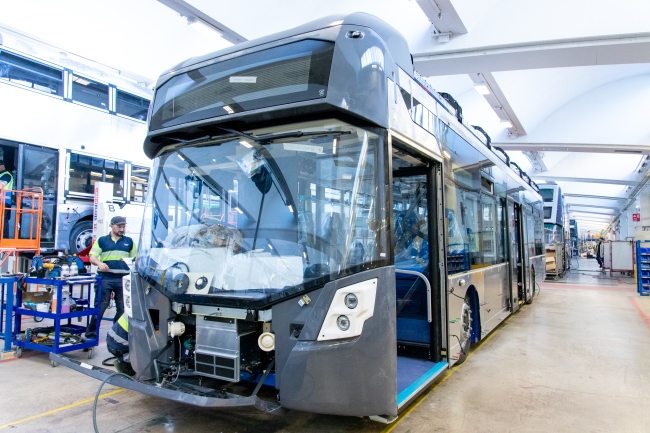3 minute read - 6th September 2023
£50m funding for cutting-edge manufacturing projects
Over £50m of government funding has been awarded to 30 cutting-edge manufacturing projects including rapid-charging motorcycles and self-driving cars, boosting innovation in energy storage and self-driving technologies.
The government says the funding will improve the UK’s innovation of clean, green technologies, helping to create jobs and grow the economy. Government grant funding worth £11m through the Advanced Propulsion Centre (APC) is being awarded to 12 fast-start projects aiming to accelerate product development of motorcycles, buses, cars and more. With industry match-funding, projects will receive a total of £22.7m to develop innovative automotive products within 12 months.
Winners include White Motorcycle Concepts, who are developing a fully operational, rapid-charge first responder motorcycle for use by emergency services, Dolphin N2 who are creating a tractor fuelled by hydrogen made on the farm from renewables, and Wrightbus who are accelerating the development of zero-emission hydrogen fuel cell electric coaches.

Over £50m of government funding has been awarded to 30 cutting-edge automotive manufacturing projects including Wrightbus for the development of a zero-emission hydrogen fuel cell electric coach / Picture: Wrightbus
Chancellor Jeremy Hunt, said: “From farm tractors fuelled by hydrogen to rapid-charge first responder motorcycles, these projects receiving funding today show we are not short of innovators in this country. By supporting growth in the industries of the future, including through better regulation, we are delivering on our plan to get the economy growing and make the UK the best place in the world to start and grow a business.”
Nusrat Ghani, minister for industry and economic security, added: “The UK automotive sector is at the cutting edge of exploiting innovative technologies. These have the potential to create jobs, grow the economy and accelerate how we reach net zero. This package of funding will help industry and government work together and take decisive action in targeting areas where the UK is leading the way.”
Acknowledging the huge potential of self-driving technologies, the Centre for Connected and Autonomous Vehicles (CCAV) is also providing £18.5m of R&D grant funding for 43 British companies. A total of 13 projects are developing self-driving technologies, products and services and transforming the ways people and goods are moved across the nation.
Winners include Wayve, who are developing methods to evidence the safety of AI in self-driving technology, Nissan, who are further developing their self-driving capability in towns and cities, and Zero Point Motion, who are developing an automotive sensor that will change how self-driving vehicles position themselves in the real world.
The Faraday Institution will also invest £19m in four key battery research projects and drive innovation. The projects include Nextrode, focusing on developing new ways to manufacture electrodes (an important battery subcomponent) to make batteries cost less and perform better, and NEXGENNA, aiming to improve the performance of sodium-ion batteries – a technology with significant advantages around sustainability, safety and cost.
The Faraday Battery Challenge (FBC), delivered by Innovate UK, has awarded £3.2m to three leading universities to help the UK’s regional battery industries by addressing their skills needs. This will ensure that the UK becomes a leader in the shift towards electrification and maintains a strong global position in the industry.